Start Exploring Keyword Ideas
Use Serpstat to find the best keywords for your website
The Guide to Keyword Research for Mobile Apps

In this article, I will tell you how to start your keyword research and reach the top with Serpstat, combining classic SEO and mobile app ranking in Google Play.
Analysis of apps that rank on Google
- Find a list of apps
- Find the keywords that rank for app subdomains
- Focus on the category and keyword
- Use filters to be more specific
- Select promising keywords
How to spy on competitors?
- Thematic research
- Search for official competitors' sites
- Competitor analysis in Serpstat
- A tip for contextual advertising
A checklist on how to find keywords for a mobile app:
Related cases
Why is it important to optimize the application?
The main task of the specialist is to attract organic traffic.
- text optimization (keywords);
- graphic optimization (graphics, icons, screenshots);
- social metrics (ratings, reviews).
There are now many software products for optimizing mobile applications. Such as AppFollow, ASOMobile, and others. But working with keywords is always broader and can include any services to collect search terms. Let's look at how you can run keyword research with Serpstat.
Analysis of apps that rank on Google
Does Google have data on iOS and Android apps? Yes.
Bingo! That means you can use Google to collect and analyze keywords. And here's how:
Find a list of apps
And all iOS apps are at this:
Find the keywords that rank for app subdomains
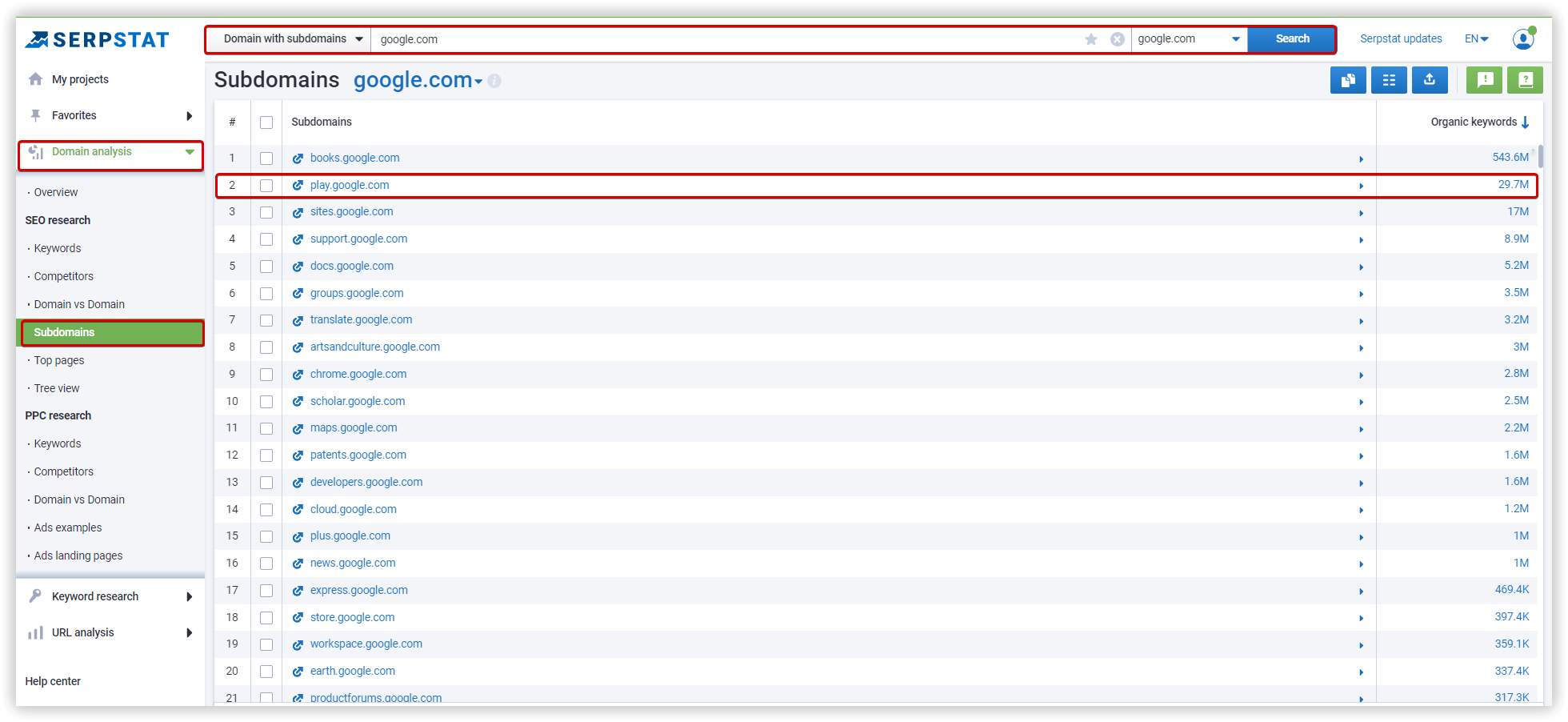
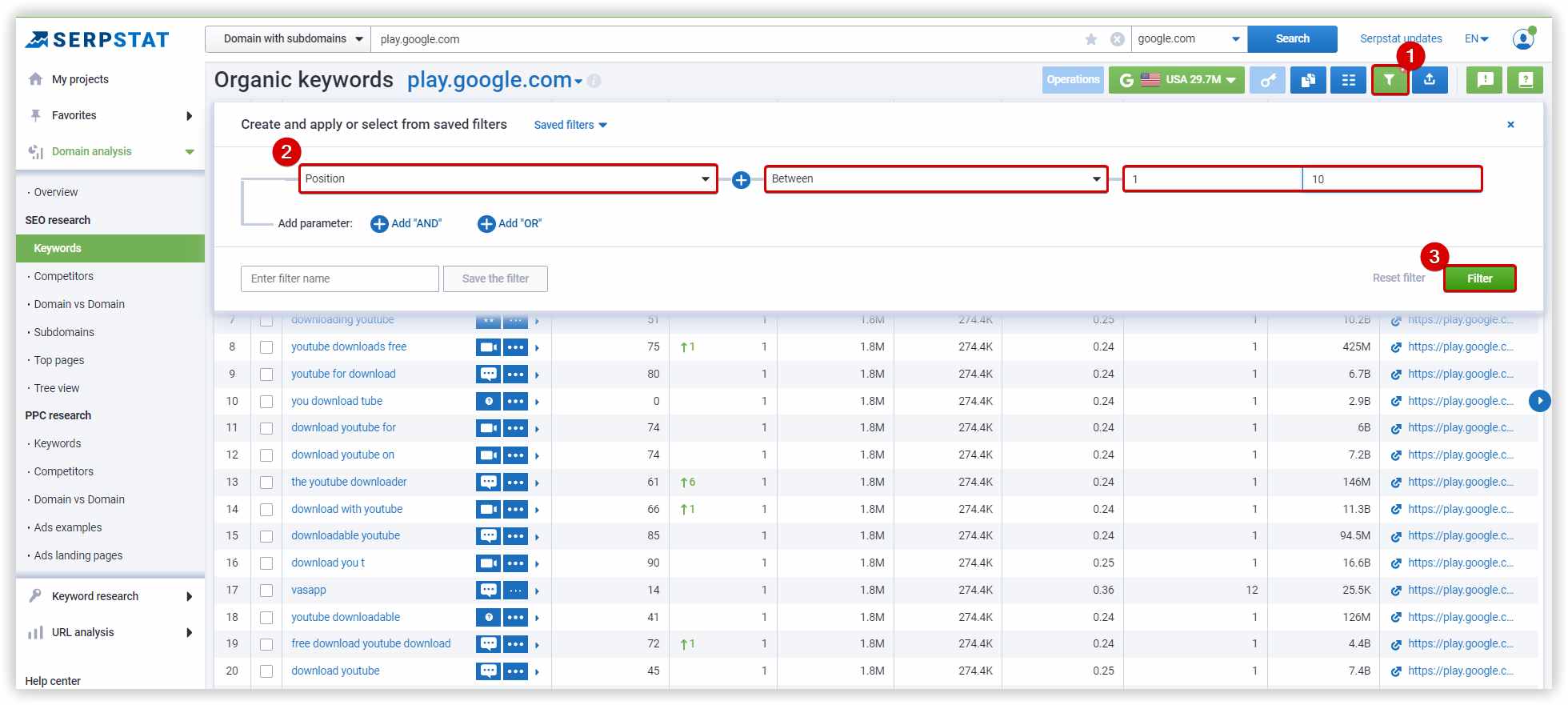
Focus on the category and keyword
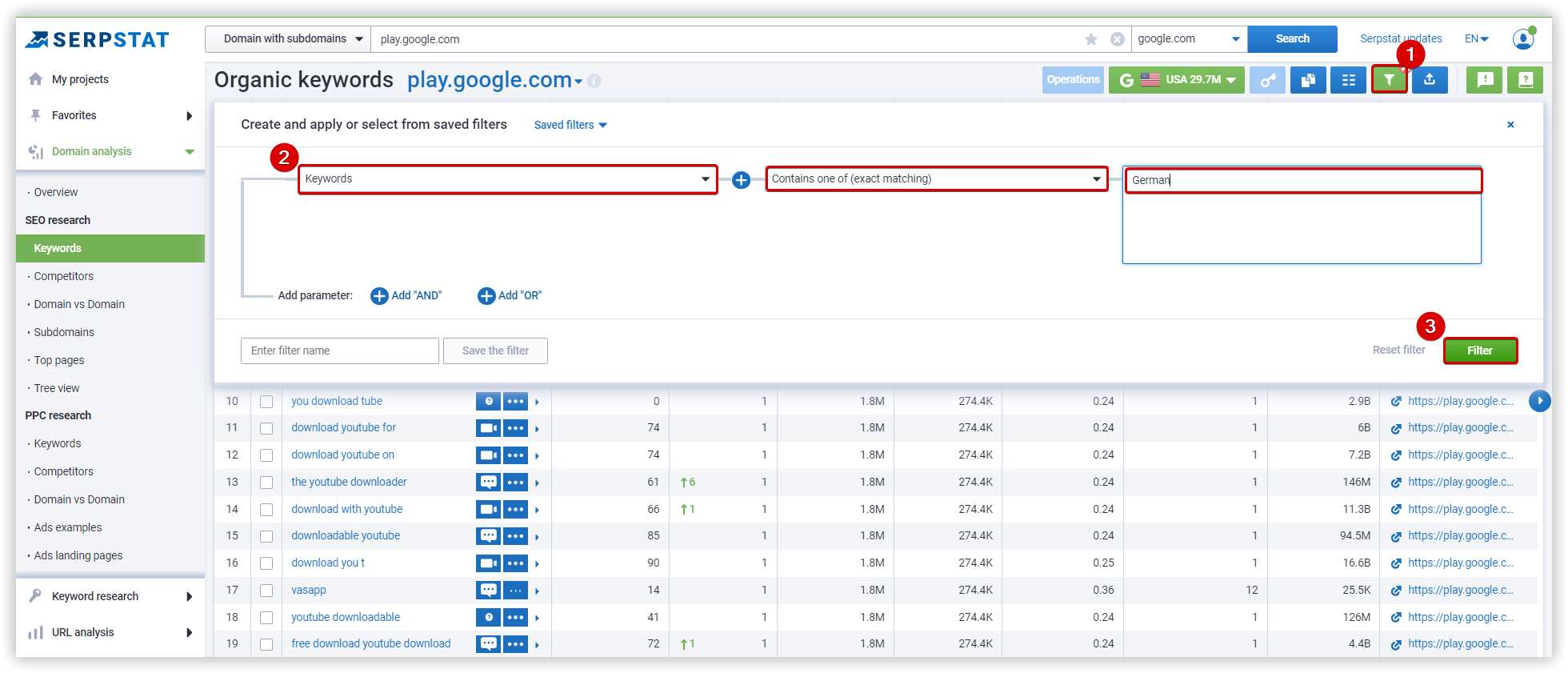
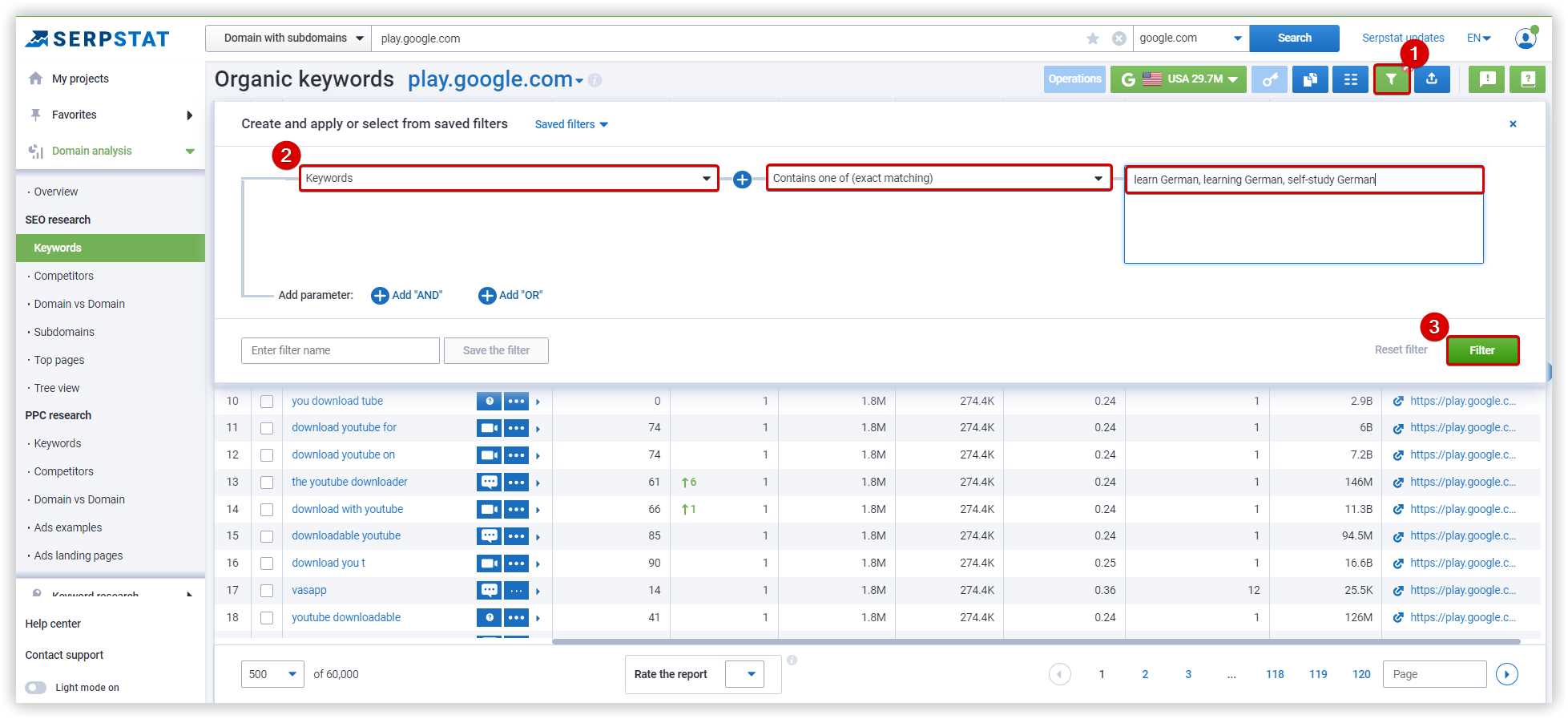
I can use this information for a more detailed analysis as well. The last column called "URL" has links to applications that rank for a particular keyword.
Use filters to be more specific
- contain in the keyword "learning German";
- are in the top 10;
- have a search volume of over 100;
- cost less than $2 in AdWords.
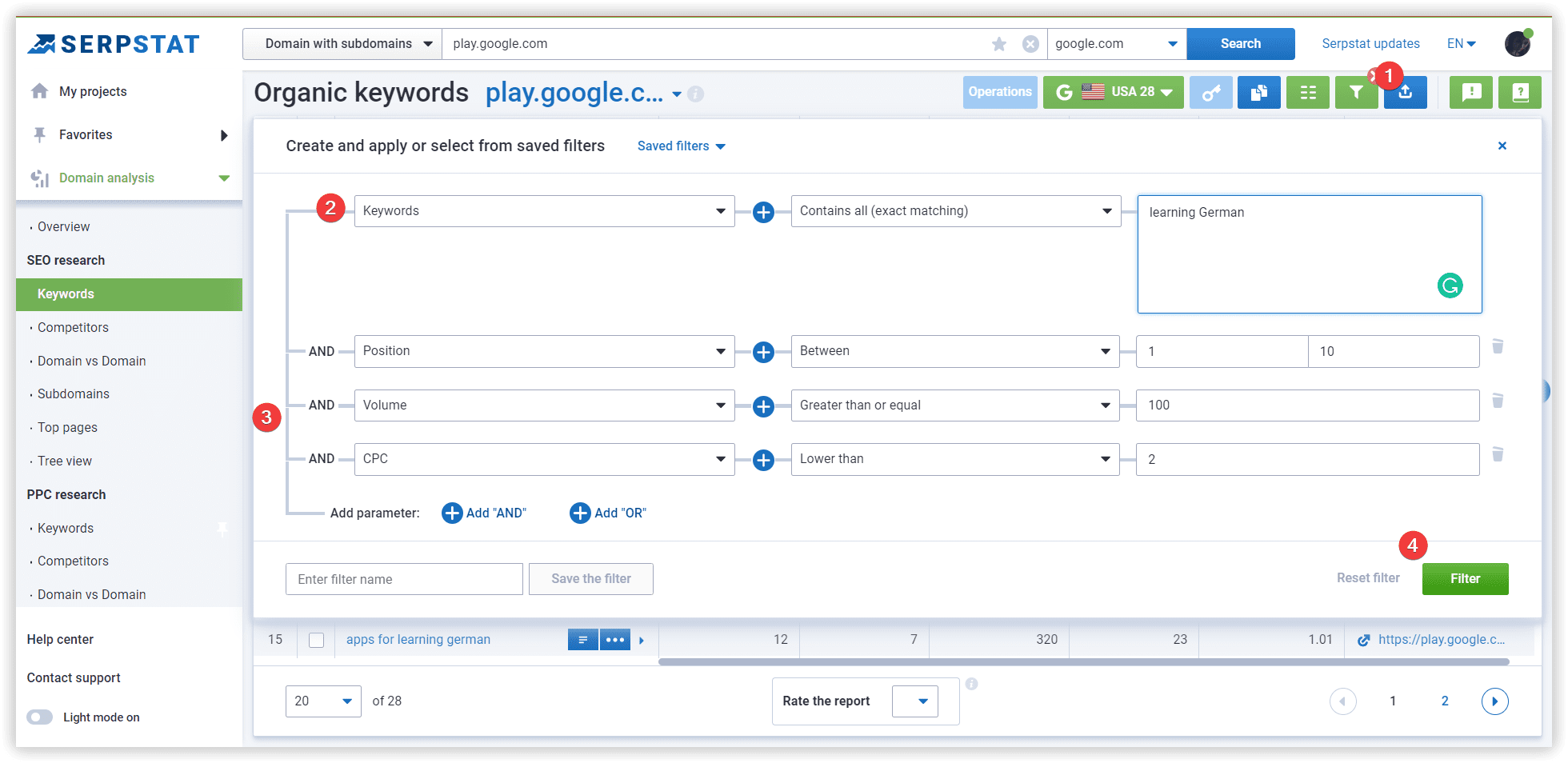
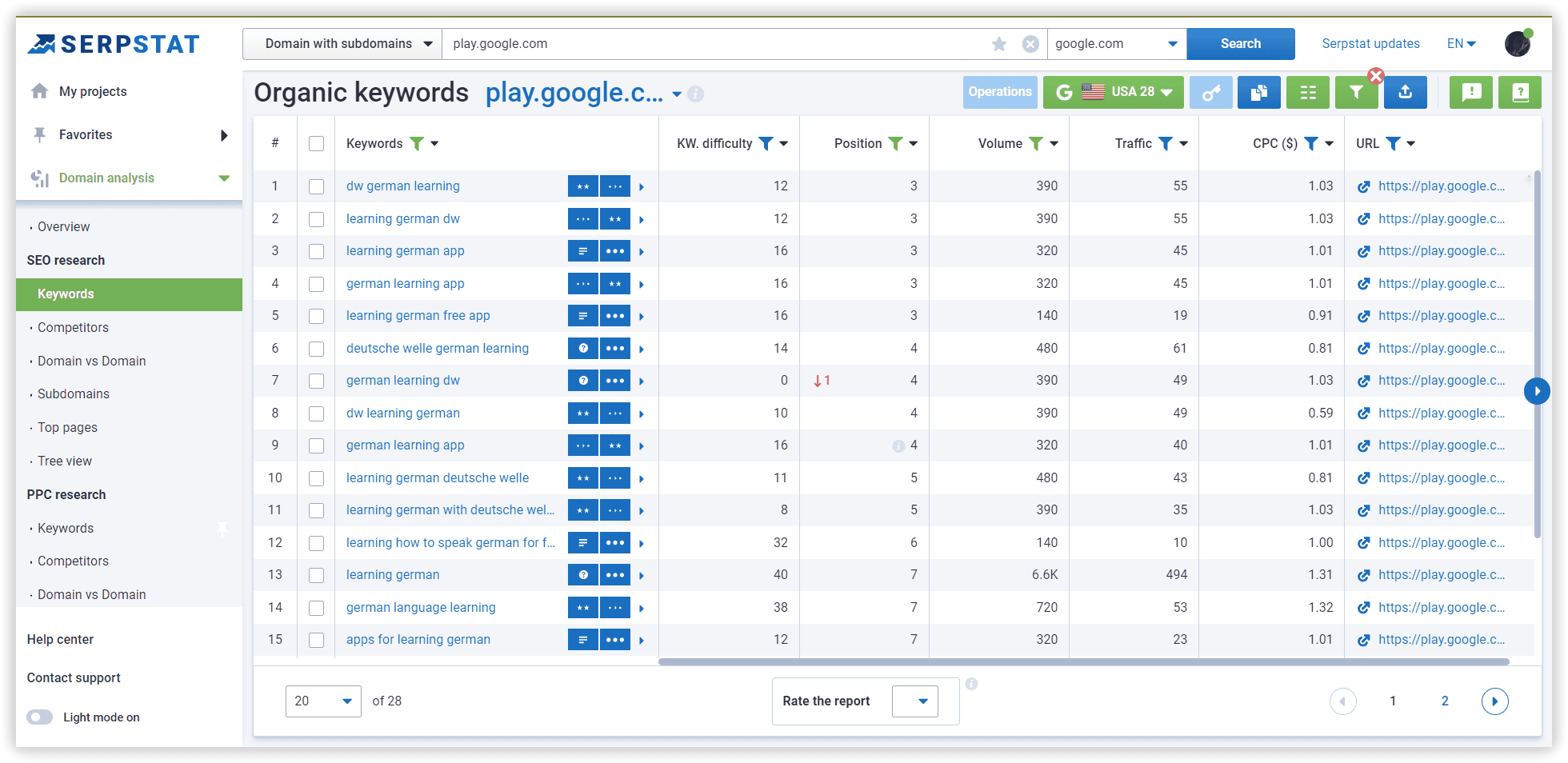

Leave a request and our experts will advise you on the development of your project and will share educational materials!
Select promising keywords
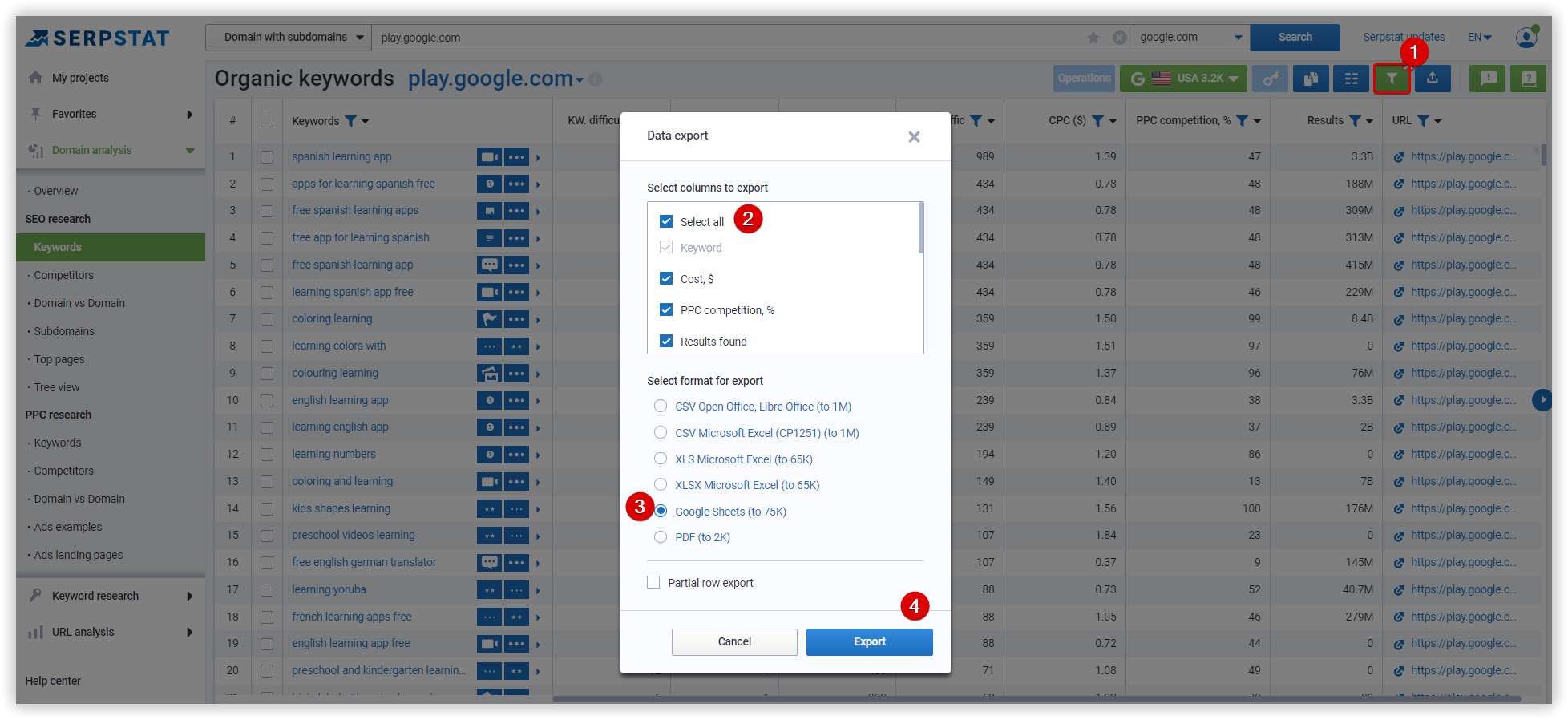
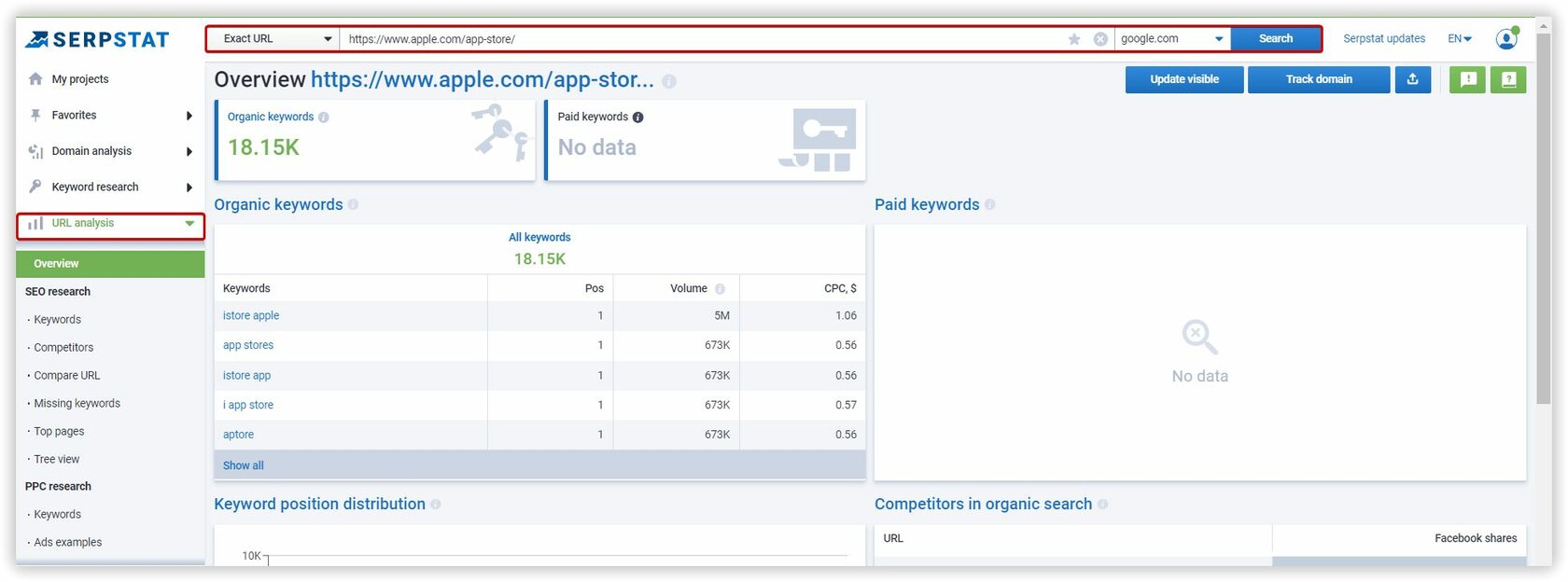
How to spy on competitors?
- What other keywords are used by the competitor?
- What do they write about on the site?
- Does the competitor of the top app use similar search terms?
- Are there keywords that Google rates well that I don't know about?
Serpstat has all the answers :)
Thematic research
Search for official competitors' sites
I have two domains to analyze and compare:
- learngerman.dw.com
- duolingo.com
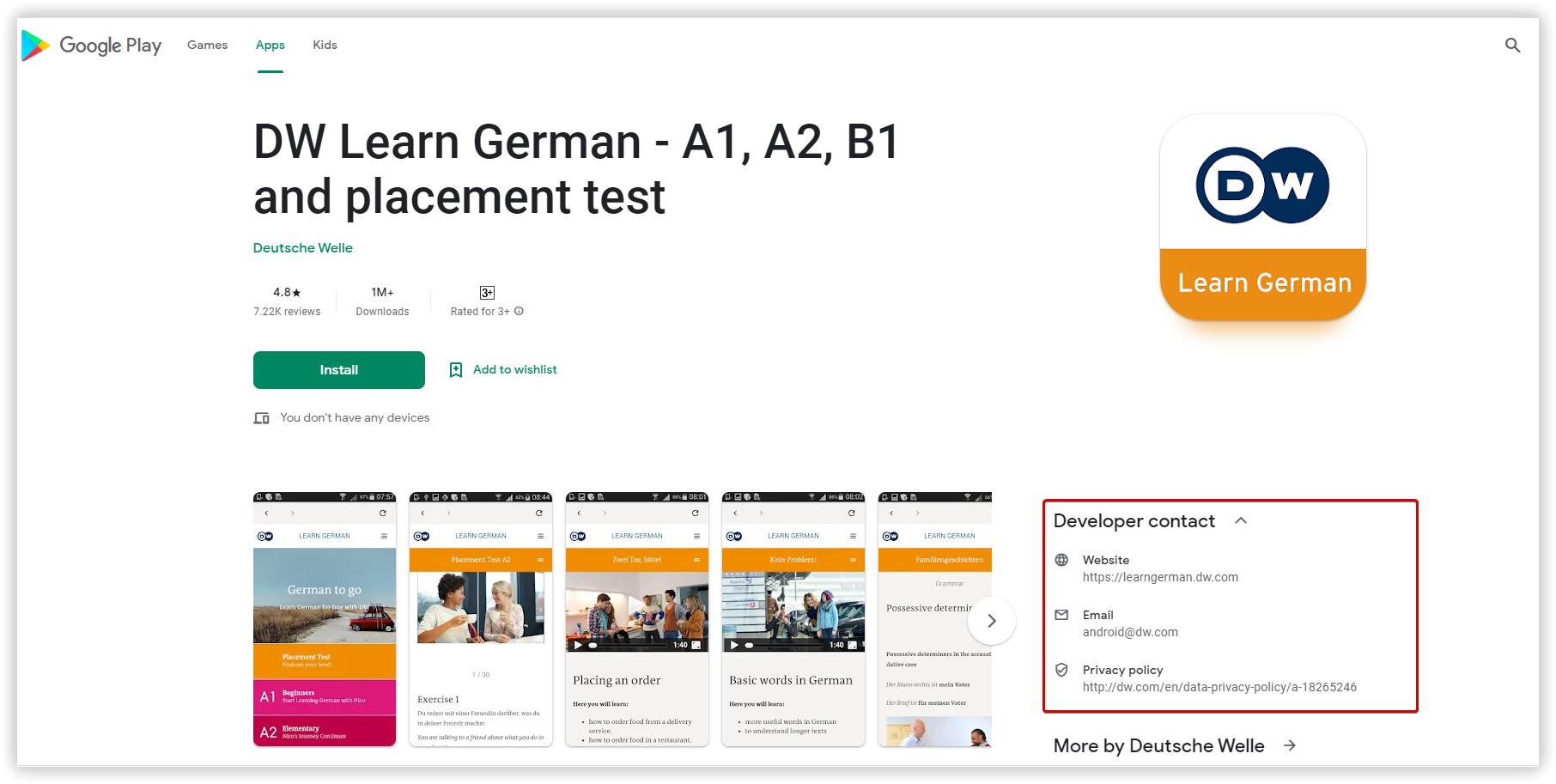 | 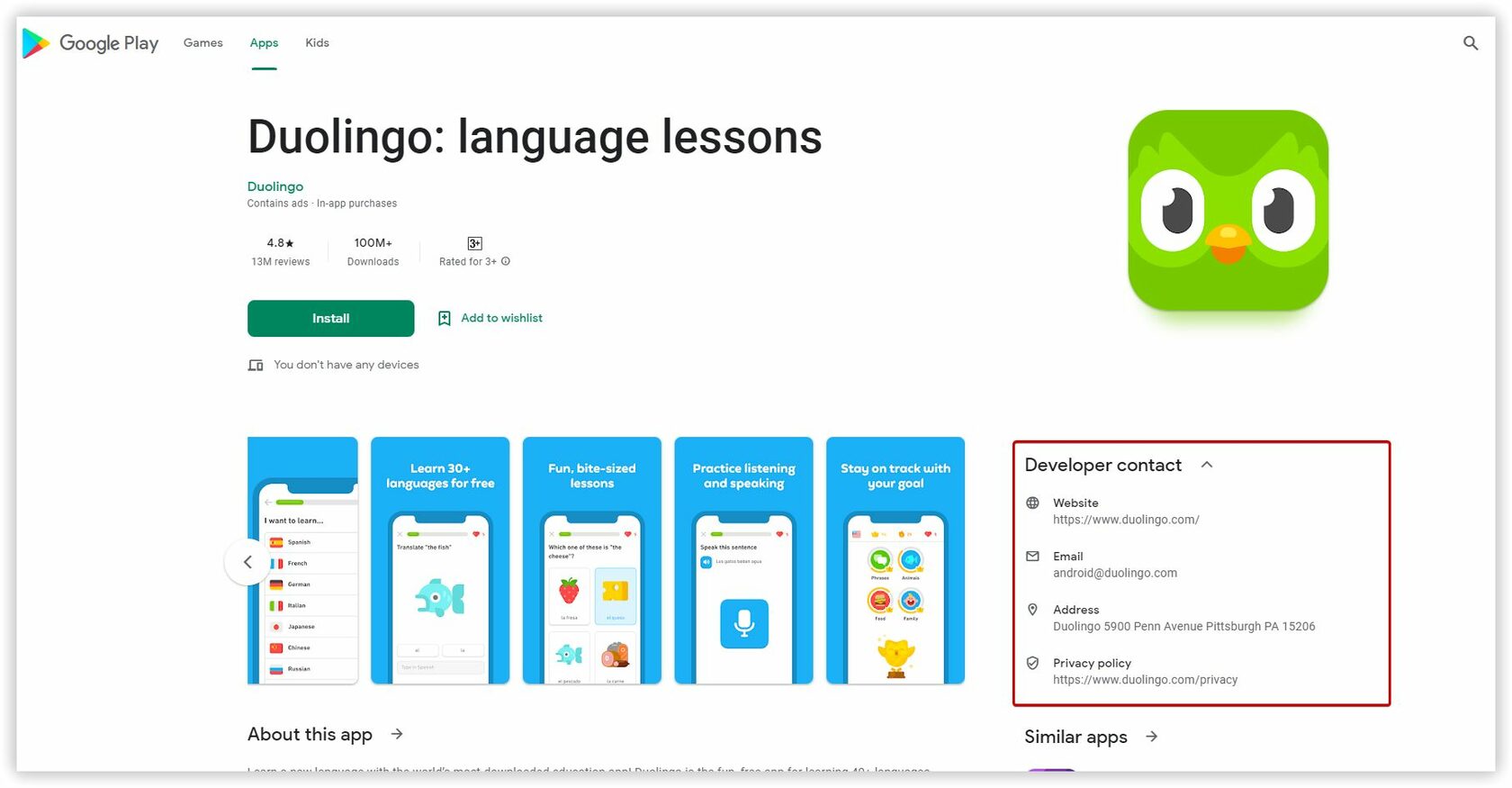 |
Competitor analysis in Serpstat
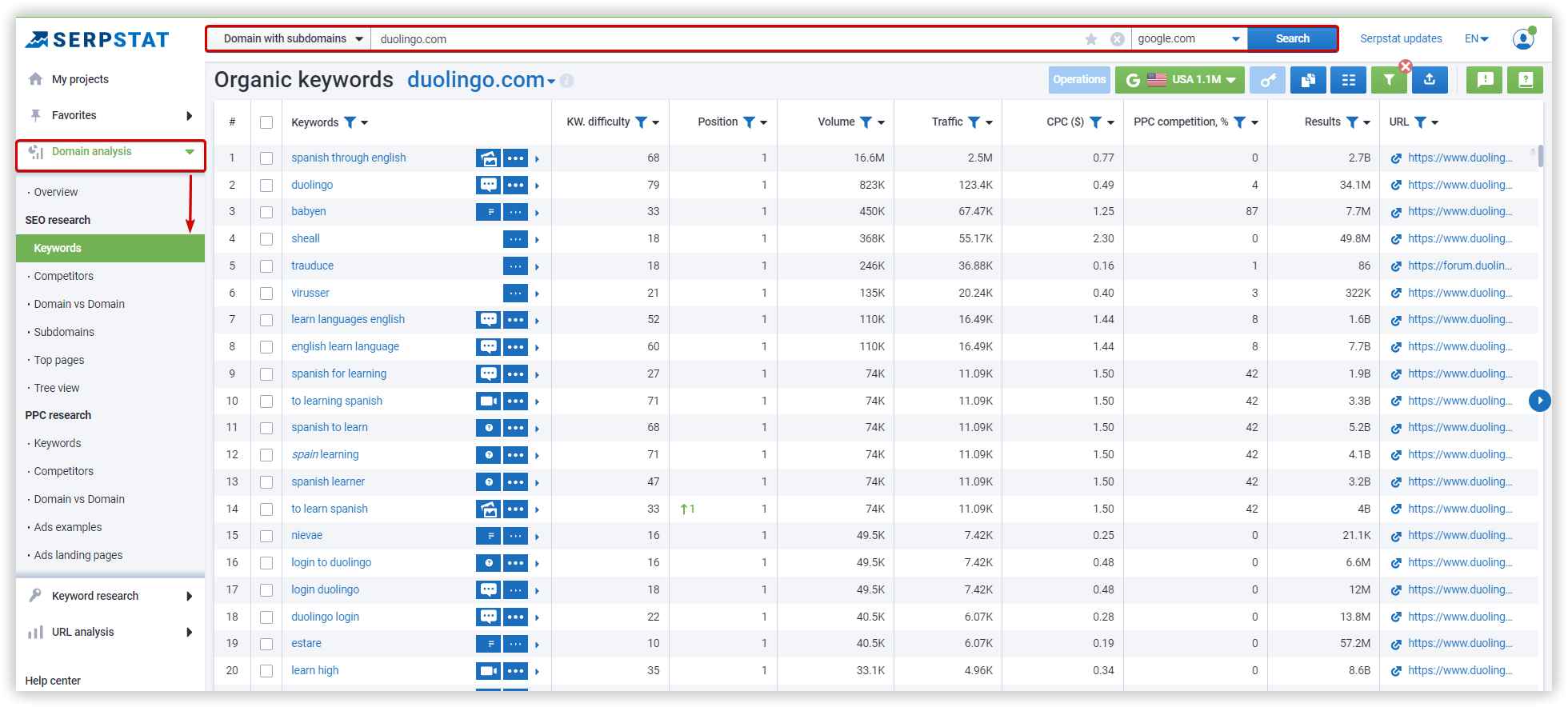
- keywords that contain "learning German",
- exclude branded queries.
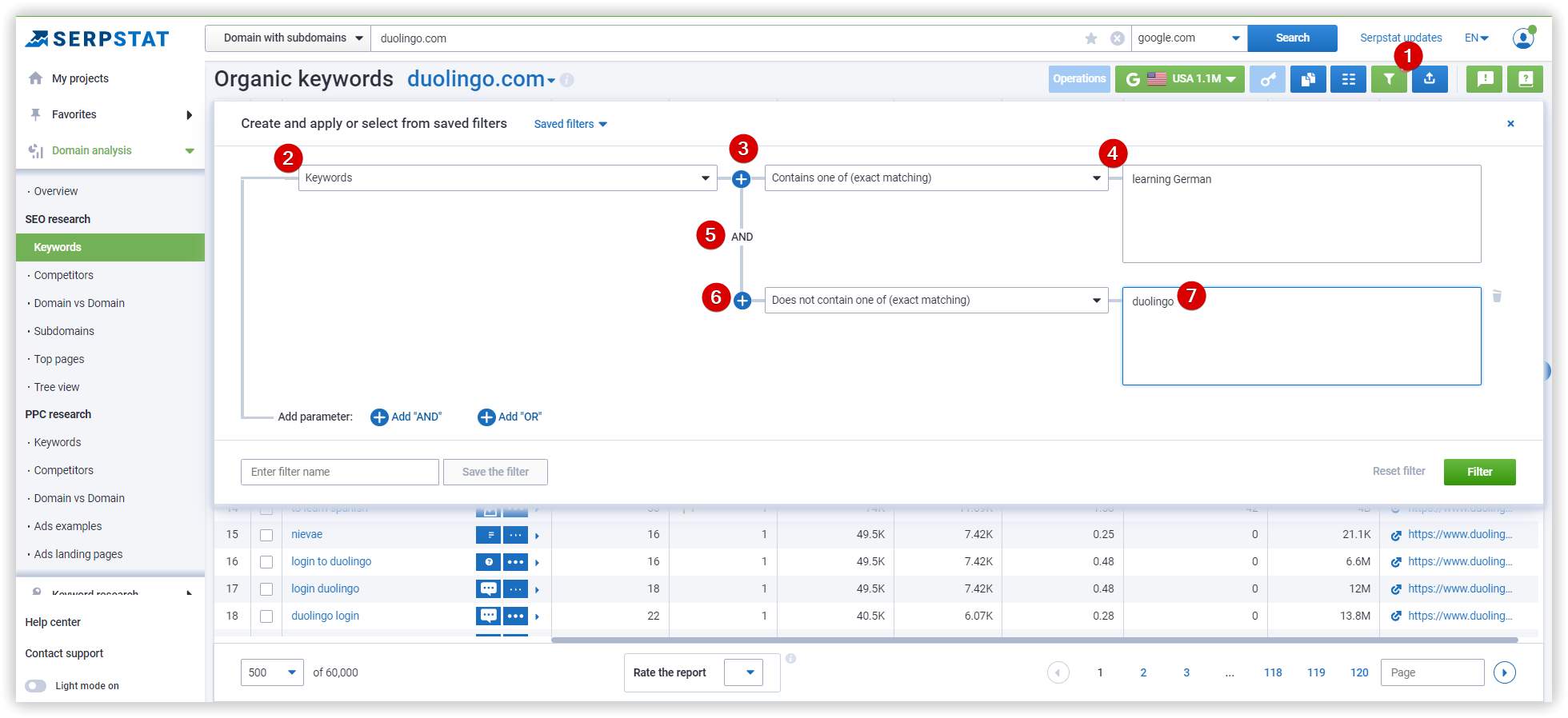
Domain vs Domain
To analyze keywords in organics, I select "Domain Analysis" → "SEO Research" → "Domain vs Domain" from the left menu and enter the domains of the selected sites in the search bar.
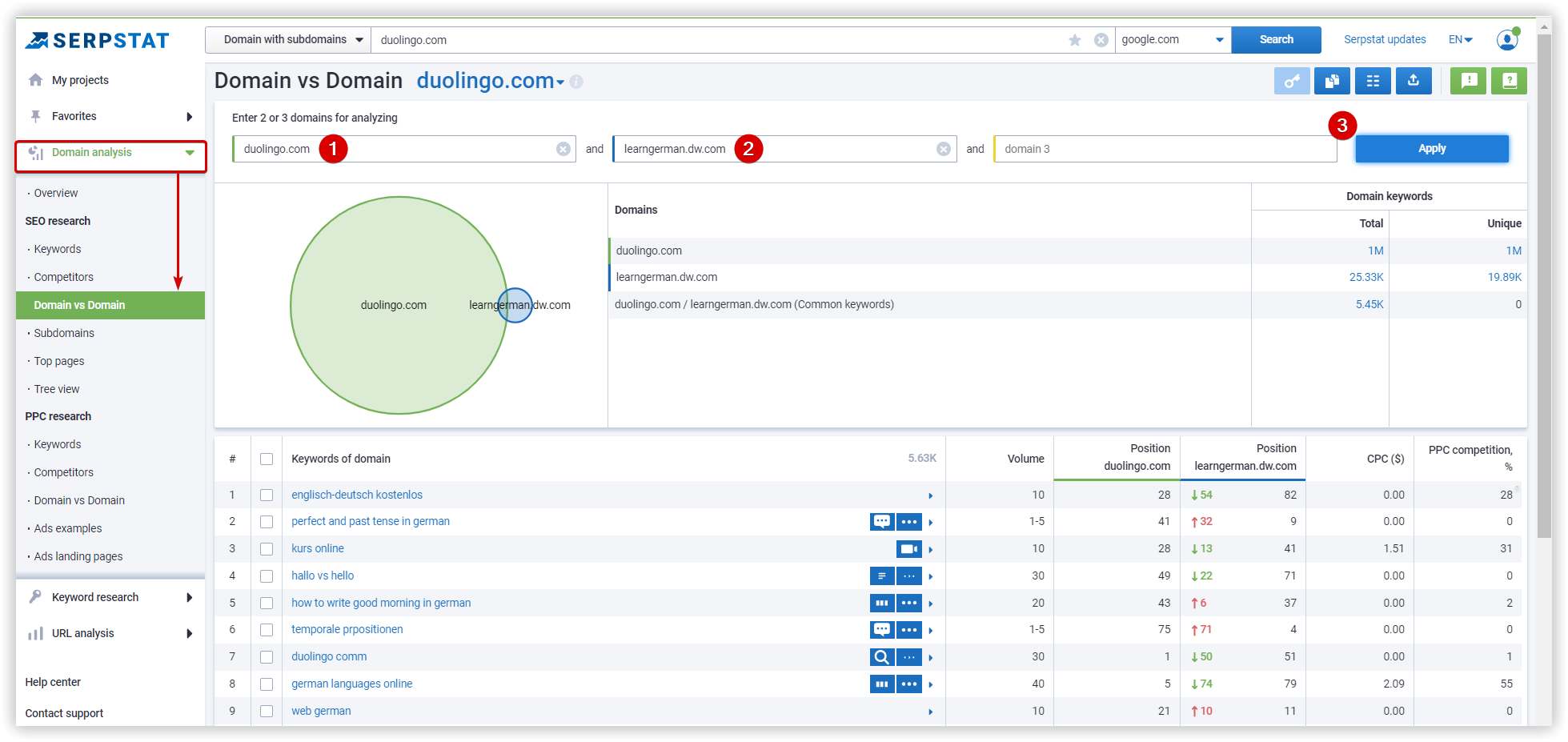
Common keywords are displayed in the table below by these parameters:
- the position of each site for a particular keyword;
- volume (the average number of queries in a search engine keyword per month);
- the cost of the keyword in AdWords in U.S. dollars;
- The competition of keyword in contextual advertising in percentage.
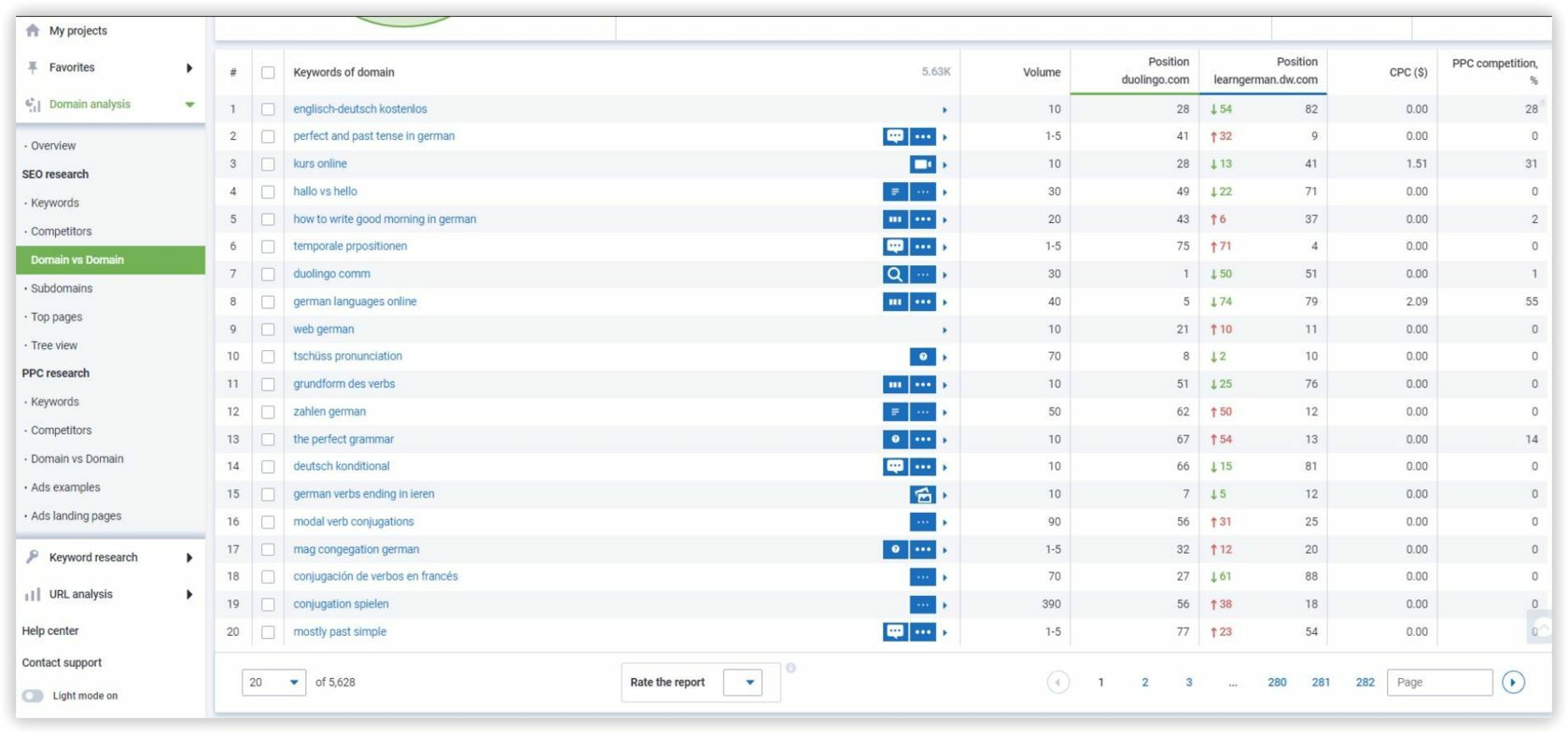
A tip for contextual advertising
To study the contextual advertising for the site duolingo.com, I entered the domain into the search box and analyzed the results. If necessary, you can add filters.
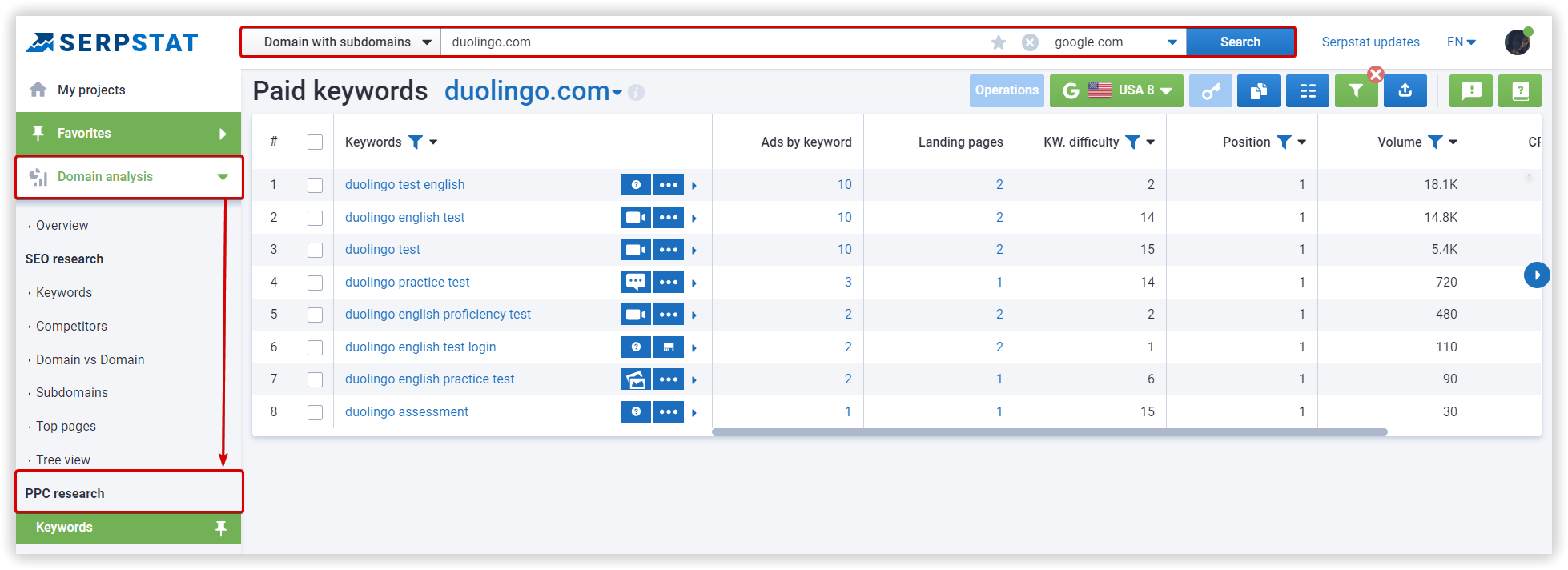
Duolingo.com has German, English, and Spanish versions of the site. How do I know that? Let's go back to the "Subdomains" tab. I'm not interested in the duolingo.com subdomains themselves, but in the keywords they use to rank in searches. I enter the domain into the search and click on the link on the right to see a list of keywords for the German version of the site.
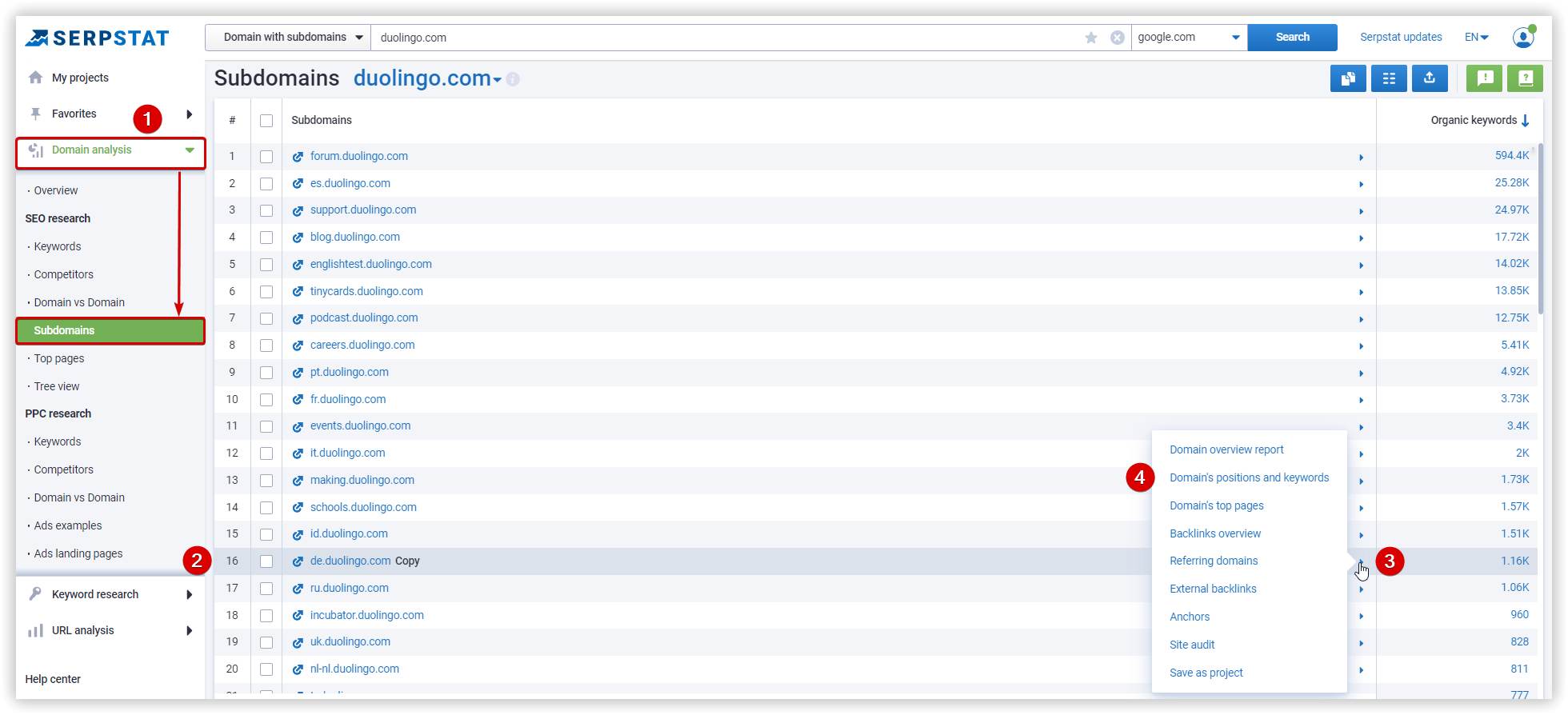
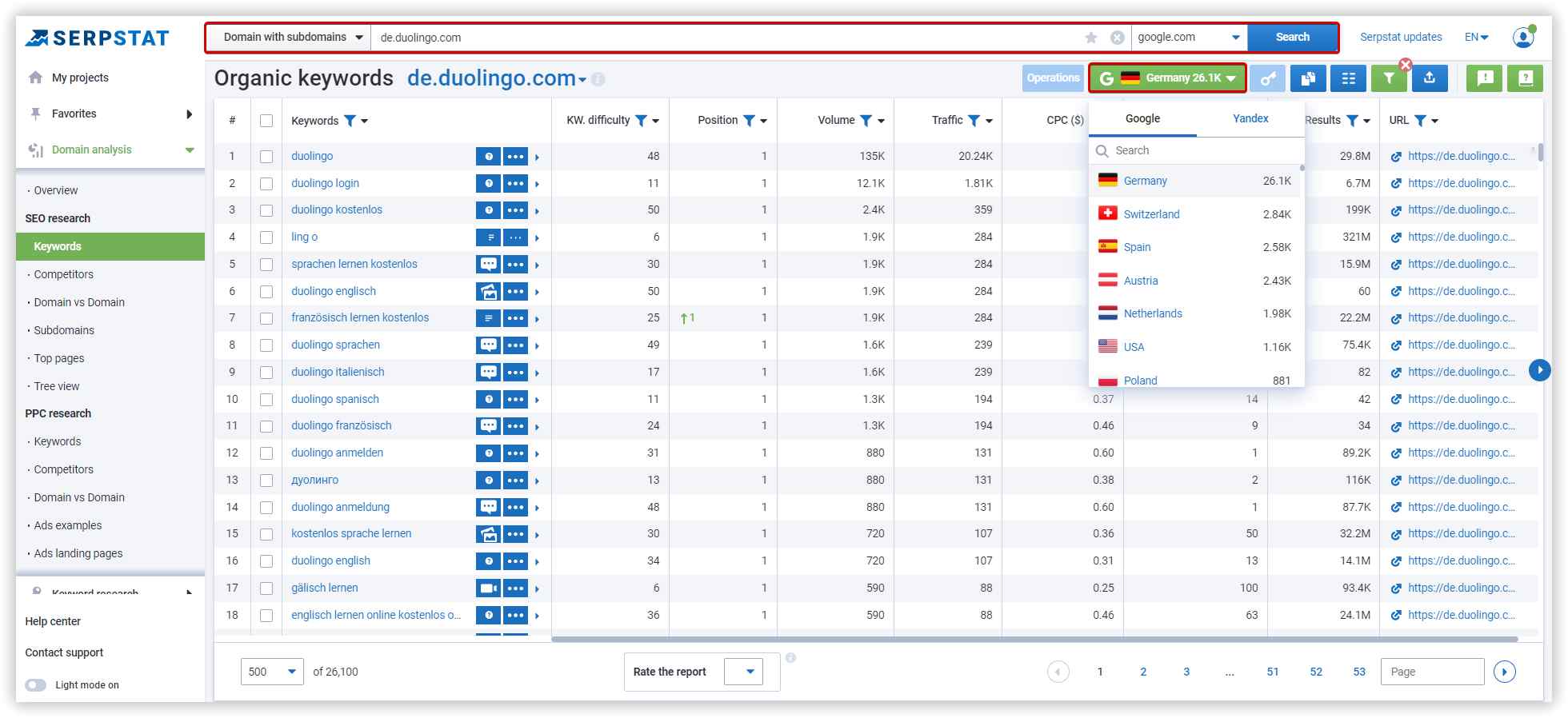
But I'll stop here and summarize :)
A checklist on how to find keywords for a mobile app:
Speed up your search marketing growth with Serpstat!
Keyword and backlink opportunities, competitors' online strategy, daily rankings and SEO-related issues.
A pack of tools for reducing your time on SEO tasks.
Discover More SEO Tools
Website Audit
Website SEO analysis – gain detailed insights into your website's technical health
Batch Analysis of Competitors' Domains
DA Domain Checker – get valuable information about the competitors' domains
AI Content Tools
AI Content Marketing Tools – simplify and optimize the content creation process
Local SEO Tool
Our local SEO platform – optimize your website for maximum impact
Recommended posts
Cases, life hacks, researches, and useful articles
Don’t you have time to follow the news? No worries! Our editor will choose articles that will definitely help you with your work. Join our cozy community :)
By clicking the button, you agree to our privacy policy.
Thank you, we have saved your new mailing settings.

